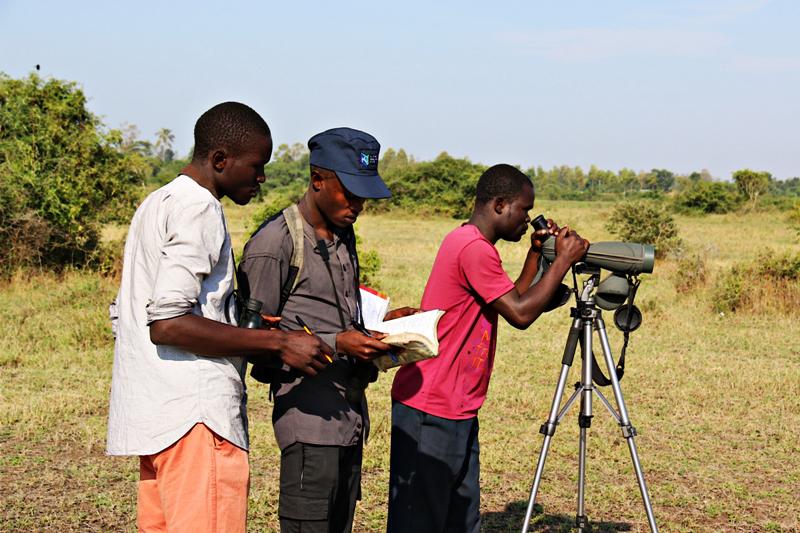Martin Odino
Other projects
18 Feb 2009
Measuring the Conservation Threat to Birds in Kenya Resulting from Pesticide Poisoning
24 Jan 2014
Modelling Community-Based Sustainable Bird Monitoring and Avitourism as a Conservation Tool against Bird Poaching at Bunyala Rice Scheme, Western Kenya
2 Jan 2018
Identifying the Drivers of Intentional Wild Bird Poisoning and Providing Sustainable Alternatives to Wild Bird Poaching and Consumption
This proposed venture will enhance our prior anti-poisoning initiatives and involve more locals in an income-generating fowl industry to produce sustainable, healthier protein sources. We aim to erode poisoned bird markets to protect birds and people while favouring avitourism.

Scouts surveying for and against poisoning.
The deliberate pesticide poisoning of birds for human consumption at Bunyala rice plantation threatens bird populations and human health. In this project, we will:
Provide a better alternative to poisoned wild bird meat by farming and selling fowl and fowl products at inexpensive rates. Quails will be incorporated at a short start-up phase as a transitional proxy for wild birds hoping to facilitate the locals’ transformation to eating only domesticated food source, i.e., poultry. Women will be involved at the poultry farm with the sale of the fowl products raising money for their incentive stipend and running of the venture.
Four motorcycles will also be provided to be shared among 8 scouts to facilitate anti-poisoning and monitoring surveys as well as delivery of fowl products to markets with parallel taxi services offered by the scouts using the bikes enabling them to raise their monthly stipend.
We will also educate the local society on issues of bird poisoning targeting particularly children and women who are key consumers of poisoned bird meat. We expect that at the end of this project these crucial beneficiaries will reject the fouled component in their diet.
In the end, we intend to safeguard bird and human lives while promoting the richness and value of the area’s biodiversity.
This proposed project offers sustainability of anti-poisoning activities independent of, but in support of avitourism and focuses on lessening the demand for poisoned wild birds by providing farmed fowl while raising funds for the project’s sustenance. The scouts’ survey component of this project is intended to directly prevent the poisoning threat to birds and, by extension, to human health. Biodiversity data gathered during the surveys will then be used to advocate for, and market Bunyala in the quest to expose the site’s avitourism potential and, preventing further depletion of the region’s avian diversity, constituted of palaearctic migratory populations, globally threatened species like the Hooded Vulture, regionally rare species like Beaudouin’s Snake Eagle and Lake Victoria biome species with the potential to make the area especially appealing to international tourists/birdwatchers. Avitourism would complement income generation from the fowl-keeping venture and add to the project’s long-term sustainability.